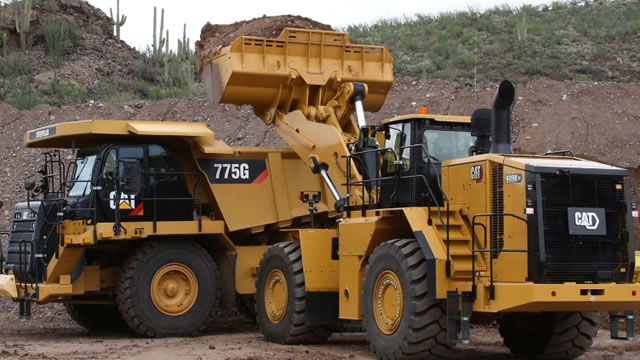Wall Street’s Sour Reaction to New Tariff Policies: A Rough Ride for Heavy Equipment Manufacturers
Wednesday night’s announcement of new tariff policies left Wall Street’s collective stomach in knots, but for some industries, the news was downright disastrous. Case in point: heavy equipment manufacturers.
The Market’s Initial Reaction
The Dow Jones Industrial Average took a nosedive, dropping over 400 points in the hours following the tariff announcement. The S&P 500 and Nasdaq Composite also saw significant losses. But it wasn’t just the broad market that felt the pain.
Heavy Equipment Manufacturers Brace for Impact
Heavy equipment manufacturers, in particular, are feeling the heat. Companies like Caterpillar, Deere, and CNH Industrial saw their stocks take a hit, with Caterpillar’s shares dropping over 4% in after-hours trading.
Why the focus on heavy equipment manufacturers? Simple: they’re heavily reliant on international trade. Much of their equipment is manufactured overseas and then shipped to the United States for sale. Tariffs on imported steel and aluminum, two key components in heavy equipment, will drive up costs for these companies.
The Ripple Effect: How It Impacts Us
As consumers, we might not feel the tariff’s impact right away. But it’s important to remember that increased costs for manufacturers eventually get passed on to consumers in the form of higher prices. So, if you’re in the market for a new bulldozer or backhoe, you might want to start saving up a little extra cash.
The Ripple Effect: How It Impacts the World
The tariffs’ impact goes far beyond the United States. China, the European Union, and other countries have already threatened retaliatory tariffs on American goods. This could lead to a global trade war, with each side imposing tariffs on an increasing number of goods.
The ripple effect of these tariffs could be significant. Supply chains could be disrupted, leading to shortages and higher prices for consumers. Businesses might delay investments due to uncertainty, which could slow economic growth. And, of course, there’s always the risk of a full-blown trade war, which could have far-reaching consequences.
A Silver Lining?
It’s not all doom and gloom, though. Some economists argue that tariffs could help protect American industries and create jobs. The jury is still out on whether this will be the case, but one thing’s for sure: we’re in for a bumpy ride.
- Wall Street reacted negatively to new tariff policies
- Heavy equipment manufacturers are among the worst affected
- Increased costs for manufacturers will lead to higher prices for consumers
- Retaliatory tariffs could lead to a global trade war
- The impact goes beyond the United States
So, there you have it. A quirky, relatable look at how the new tariff policies are affecting the heavy equipment manufacturing industry and, by extension, us consumers. Stay tuned for more updates as this situation continues to unfold.
Conclusion
In a nutshell, Wall Street’s initial reaction to the new tariff policies was far from positive, and heavy equipment manufacturers are feeling the brunt of it. Increased costs for these companies will eventually be passed on to consumers in the form of higher prices. Retaliatory tariffs could lead to a global trade war, with far-reaching consequences. But let’s not forget that there might be a silver lining – tariffs could help protect American industries and create jobs. Only time will tell.





